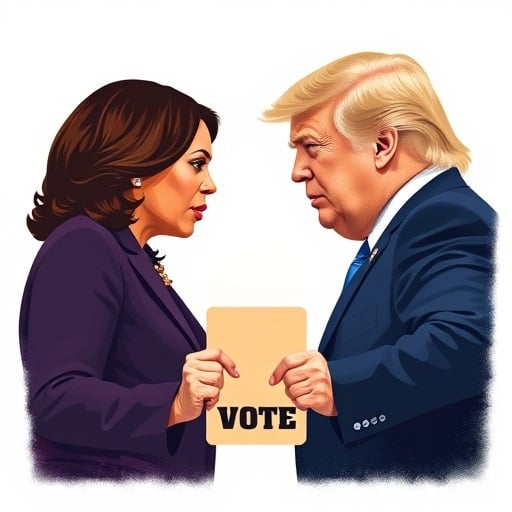The upcoming U.S. presidential election is marked by stark contrasts in the candidates' foreign policy stances, particularly regarding Iran.
In early October, former President Donald Trump critiqued President Joe Biden's advisory to Israel on avoiding attacks on Iran's nuclear facilities, asserting that addressing Iran's nuclear ambitions is of paramount importance. Meanwhile, Vice President Kamala Harris labeled Iran as the U.S.'s "greatest adversary" during her October 7 interview, emphasizing the urgency of preventing Iran from acquiring nuclear capabilities.
These statements raise questions about the candidates' potential post-election policies. If Trump were to be reelected and Israel acted on his advice, would he involve the U.S. in a prolonged conflict to prevent a nuclear Iran? Conversely, does Harris genuinely view Iran as a more significant threat than China or Russia, and how would she respond if elected?
Historically, Trump has taken a hardline stance towards Iran, spearheading a "maximum pressure" campaign during his presidency. However, when Iran attacked Saudi oil facilities in 2019, Trump opted against deploying U.S. forces for defense. This raises doubts about whether his approach would differ if Israel were threatened after striking Iran. The Biden administration's National Defense Strategy currently prioritizes China as the primary concern, with Iran categorized as a regional disruptor rather than a global threat.
Iran's political landscape has shifted recently, with the election of Masoud Pezeshkian raising hopes for renewed negotiations with the U.S. However, escalating tensions between Iran and Israel could drag the next U.S. administration into conflict. Israel has taken assertive military actions against Iranian proxies, and leaked U.S. intelligence suggests plans for strikes on Iranian nuclear sites. Yet, such actions may provoke Iranian retaliation, compelling the U.S. to reconsider its involvement.
The possibility of a U.S. military campaign against Iran is fraught with complexities. While a ground invasion appears unlikely given past military engagements in the region, airstrikes reminiscent of President Bill Clinton's late 1990s actions in Iraq are plausible. Clinton's strategy included economic warfare, arming opposition groups, and targeted bombings to weaken Saddam Hussein's regime, ultimately leading to a ground invasion to overthrow it. A similar strategy could aim to dismantle Iran’s military capabilities and nuclear infrastructure.
Should Iran respond to airstrikes by intensifying domestic repression, the regime might manage to survive and potentially advance its nuclear program, achieving a "balance of terror" with Israel and the U.S. Conversely, sustained military pressure could destabilize Iran, leading to internal strife. In this scenario, the next U.S. administration may confront a fractured Iran or one equipped with nuclear weapons.
The stakes are high as the next president will inherit a complex web of challenges regarding U.S.-Iran relations and the broader implications for Middle Eastern stability. The outcome of the election will significantly influence U.S. foreign policy, particularly concerning Iran's nuclear ambitions and its implications for regional and global security.

Source: AGSIW





